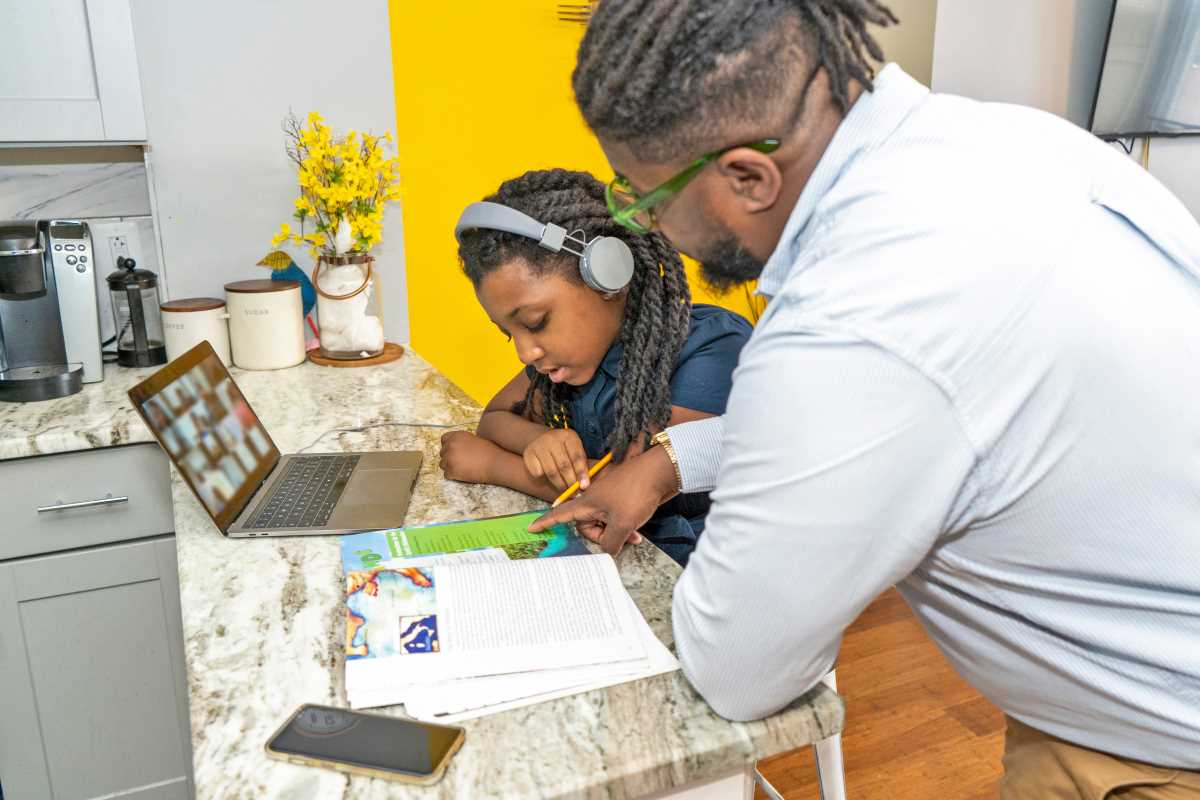Ah, homework. The word alone can trigger flashbacks of late-night math meltdowns and frantic last-minute poster-board projects. For many parents, helping kids with homework feels like a never-ending tug-of-war between encouragement and exasperation. But it doesn’t have to be that way. Establishing healthy homework and study habits isn’t about turning your living room into a library or timing every pencil stroke, it’s about creating routines, attitudes, and environments that make learning feel manageable, even enjoyable.
The truth is, kids don’t magically develop study discipline. They build it, often with a bit of help from adults who know how to balance structure with freedom. It’s not about forcing them to study harder; it’s about helping them study smarter.
Setting the Stage for Success
Before diving into the flashcards and algebra worksheets, focus on the environment. A calm, organized study space sends a clear signal: this is where focus happens. It doesn’t need to be fancy, a corner of the dining table can work fine if distractions are minimized. The key is consistency. When kids study in the same spot every day, their brains learn to associate that space with concentration.
Lighting, comfort, and supplies matter too. Dim lights and a wobbly chair won’t exactly spark motivation. Keep essentials, pencils, paper, calculators, within reach to avoid the “Mom, where’s my eraser?” interruptions that derail focus. And yes, silence is golden, but total quiet can sometimes feel oppressive. Background instrumental music or white noise can actually help some kids concentrate.
Parents often underestimate the power of environment. Think of it as setting the stage for a daily performance of “The Productive Student.” The better the stage, the smoother the show.
Routine
Children thrive on predictability. That’s why bedtime, mealtimes, and screen time work best when they’re consistent. Homework is no different. Setting a specific time for study helps kids transition smoothly from play mode to focus mode.
Some kids work best right after school, striking while the academic iron is still hot. Others need a snack and a break before they can tackle fractions. The ideal time varies, but once it’s chosen, consistency is key. The brain loves habits, it’s like mental muscle memory.
Routine also reduces power struggles. When homework time is simply “what we do,” it stops being a daily negotiation. And remember to build in short breaks. Ten minutes of stretching or a quick snack can reboot focus far better than pushing through exhaustion.
Coach, Not Commander
Here’s a radical thought: your job isn’t to do your child’s homework. It’s to guide them toward independence. Think of yourself as a coach, not a commander. Coaches observe, advise, and cheer from the sidelines, but they don’t play the game for the athlete.
When your child asks for help, resist the urge to give the answer. Instead, ask questions that lead them to discover it themselves: “What do you think the problem is asking?” or “Can you show me how you got that answer?” This approach builds problem-solving skills instead of dependency.
Of course, every coach needs to know when to call a timeout. If frustration is bubbling over, take a breather. Sometimes a glass of water, a few deep breaths, and a quick walk can restore calm better than any pep talk.
Parent involvement should empower, not overshadow. Your enthusiasm for learning will be contagious, but so will your stress, so model curiosity and patience rather than perfectionism.
Motivation Without the Bribes
“Finish your homework and you can have ice cream” might work once or twice, but long-term motivation needs sturdier fuel. Extrinsic rewards (like treats or screen time) can be useful starters, but intrinsic motivation, doing something because it feels satisfying, is the ultimate goal.
To spark that, help your child see the bigger picture. Why does studying matter? Not “because you have to,” but because it builds skills, confidence, and freedom. Connect lessons to real life: fractions in cooking, history in movies, vocabulary in their favorite songs. When kids understand why they’re learning, they engage more deeply.
And don’t underestimate the power of praise, but use it wisely. Instead of saying, “You’re so smart,” try, “I love how hard you worked on that.” Effort-based praise builds resilience and encourages kids to tackle challenges rather than avoid them.
Here are some ways to keep motivation alive and healthy:
- Celebrate small victories, like finishing an assignment early or improving on a test.
- Create a “study soundtrack” playlist for fun background energy.
- Mix up study methods, flashcards one day, games or visuals the next.
- Encourage short study sessions rather than marathon cramming.
- Remind kids that learning is a process, not a performance.
Technology
Let’s face it, screens are both a blessing and a curse. On one hand, educational apps, online research, and digital planners can supercharge learning. On the other, the lure of memes, games, and social media can tank productivity faster than you can say “TikTok.”
The trick isn’t to banish screens, it’s to teach digital discipline. Set clear boundaries: homework first, entertainment later. Encourage using “focus mode” or app blockers during study time. And when possible, have kids keep phones in another room to minimize temptation.
Leverage technology for good. Tools like Quizlet, Khan Academy, or even YouTube tutorials can make learning interactive and engaging. Encourage kids to use tech creatively, like recording themselves explaining a concept or making digital flashcards.
Ultimately, the goal is to help kids develop self-regulation. When they learn to manage distractions now, they’re building a skill that will serve them far beyond homework.
When Struggles Signal Something More
If your child consistently struggles with focus, memory, or comprehension despite a good environment and routine, it may be time to dig deeper. Sometimes, poor study habits are symptoms of underlying challenges like learning differences, anxiety, or ADHD.
Watch for patterns: frequent tears, avoidance, or overwhelming frustration aren’t just signs of laziness, they’re signals that something isn’t clicking. Collaborate with teachers to identify gaps or patterns and, if needed, consult a specialist for evaluation.
The earlier these challenges are addressed, the better. With the right support, whether it’s tutoring, accommodations, or tailored strategies, kids can learn in ways that fit their unique strengths.
Modeling Matters More Than You Think
Kids are natural mimics. If they see you scrolling your phone during work hours or complaining about your own responsibilities, they’ll absorb that attitude toward their own tasks. Modeling focus, curiosity, and a positive work ethic teaches more than any lecture.
Show them how you manage your own projects or learning goals. Let them see you reading, problem-solving, or even making mistakes and bouncing back. Normalize effort and persistence. When your kids see learning as something adults also do, it stops being “kid stuff” and becomes a lifelong skill.
Also, talk openly about your own challenges. Saying, “I used to struggle with focusing too, but here’s what helped me,” turns frustration into a shared human experience instead of a personal failure.
The Power of Balance
Here’s the irony of good study habits: they depend on not studying all the time. Kids need unstructured play, exercise, and downtime. Over-scheduling or pushing constant productivity can backfire, leading to burnout and resentment.
Encourage activities that refresh the brain, sports, music, creative hobbies, even just daydreaming. Physical movement boosts concentration and memory, while rest recharges mental energy. Remember, a balanced life supports academic success far better than a nonstop grind.
Think of homework as part of the ecosystem of childhood, not the center of it. When it’s integrated smoothly into a healthy daily rhythm, it stops being a battle and becomes just another part of growing up.
Building Habits That Last a Lifetime
Helping your kids establish strong study habits isn’t just about better grades, it’s about equipping them with skills for life: organization, perseverance, and curiosity. These habits become the building blocks for self-discipline, problem-solving, and lifelong learning.
The process will have bumps. There will be tears, forgotten assignments, and the occasional “I can’t do this!” moment. But over time, consistency and support pay off. You’ll see them start taking ownership, setting their own goals, and, eventually, doing homework without being asked. (It happens. Eventually.)
The best part? When your kids learn how to manage their own learning, you get to retire from the nightly homework wars. And that’s a win for everyone.







